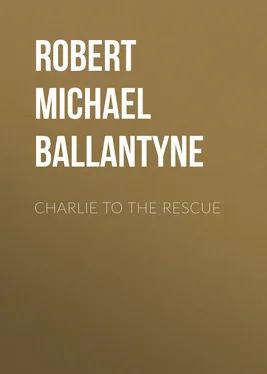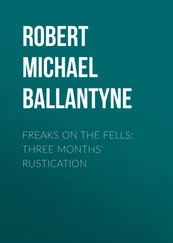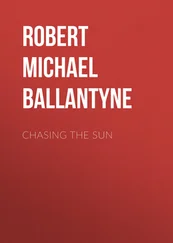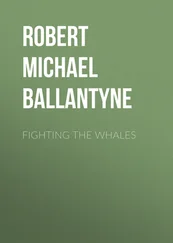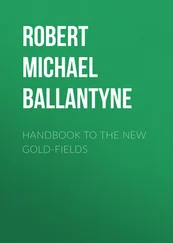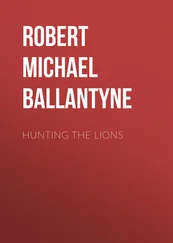Robert Michael Ballantyne - Charlie to the Rescue
Здесь есть возможность читать онлайн «Robert Michael Ballantyne - Charlie to the Rescue» — ознакомительный отрывок электронной книги совершенно бесплатно, а после прочтения отрывка купить полную версию. В некоторых случаях можно слушать аудио, скачать через торрент в формате fb2 и присутствует краткое содержание. Жанр: Детские приключения, literature_19, foreign_antique, foreign_prose, foreign_children, на английском языке. Описание произведения, (предисловие) а так же отзывы посетителей доступны на портале библиотеки ЛибКат.
- Название:Charlie to the Rescue
- Автор:
- Жанр:
- Год:неизвестен
- ISBN:нет данных
- Рейтинг книги:4 / 5. Голосов: 1
-
Избранное:Добавить в избранное
- Отзывы:
-
Ваша оценка:
- 80
- 1
- 2
- 3
- 4
- 5
Charlie to the Rescue: краткое содержание, описание и аннотация
Предлагаем к чтению аннотацию, описание, краткое содержание или предисловие (зависит от того, что написал сам автор книги «Charlie to the Rescue»). Если вы не нашли необходимую информацию о книге — напишите в комментариях, мы постараемся отыскать её.
Charlie to the Rescue — читать онлайн ознакомительный отрывок
Ниже представлен текст книги, разбитый по страницам. Система сохранения места последней прочитанной страницы, позволяет с удобством читать онлайн бесплатно книгу «Charlie to the Rescue», без необходимости каждый раз заново искать на чём Вы остановились. Поставьте закладку, и сможете в любой момент перейти на страницу, на которой закончили чтение.
Интервал:
Закладка:
“Help him!” shouted the skipper, as he staggered to the shelter of the companion.
But Charlie required no help. A loose rope hanging over the side caught his eye: he seized it and was on deck again in a few seconds. A minute later and he was down in the cabin.
There, terror-stricken, sat the skipper’s wife, never venturing to move, because she had been told to remain there till called. Happily she knew nothing of the incident just described.
Beside her sat the other women, and, near to them, a stern old gentleman, who, with compressed lips, quietly awaited orders.
“Come, quick!” said Charlie, grasping by the arm one of the women.
It was the skipper’s wife. She jumped up right willingly and went on deck. There she found her child already in the life-buoy, and was instantly lifted in beside it by her husband, who looked hastily round.
“Come here, Dick,” he said to a little cabin-boy who clung to a stanchion near by. “Get in.”
The boy looked surprised, and drew back.
“Get in, I say,” repeated the skipper sternly.
“There’s more women, sir,” said the boy, still holding back.
“True—brave lad! but you’re wanted to keep these from getting washed out. I am too heavy, you know.”
The boy hesitated no longer. He squeezed himself into the machine beside the woman and child.
Then up at arm’s-length went the skipper’s sou’-wester as a signal that all was ready, and the fishermen began to haul the life-buoy to the shore.
It was an awful trip! Part of the distance, indeed, the trio were borne along well out of the sea, though the waves leaped hungrily up and sent spray over them, but as they drew near the shore they were dipped again and again into the foam, so that the little cabin boy needed all his energy and knowledge, as well as his bravery and strength, to prevent his charge being washed out. Amid ringing cheers from the fishermen—and a treble echo from the women behind the wall—they were at last safely landed.
“My lass, that friend o’ your’n be a braave cheeld,” said an old woman to May Leather, who crouched beside her.
“Ay, that he is!” exclaimed May, with a gush of enthusiasm in tone and eyes that made them all turn to look at her.
“Your brother?” asked a handsome, strapping young woman.
“No—I wish he was!”
“Hm! ha!” exclaimed the strapping young woman—whereat there was exchanged a significant laugh; but May took no notice of it, being too deeply engrossed with the proceedings on shore and sea.
Again the fishermen ran out the life-buoy and soon hauled it back with another woman; then a third. After that came the old gentleman, quite self-possessed and calm, though very pale and dishevelled; and, following him, the crew, one by one, were rescued. Then came the hero of the hour, and last of all, as in duty bound, the skipper—not much too soon, for he had barely reached the land when the brig was overwhelmed and engulfed in the raging sea.
Chapter Three.
“It’s an Ill Wind that Blaws Naebody Guid.”
That many if not most names have originated in the character or condition of individuals seems obvious, else why is it that so many people take after their names? We have no desire to argue the question, but hasten on to remark that old Jacob Crossley was said to be—observe, we do not say that he was—a notable illustration of what we refer to.
Jacob was “as cross as two sticks,” if we are to believe Mrs Bland, his housekeeper—and Mrs Bland was worthy of belief, for she was an honest widow who held prevarication to be equivalent to lying, and who, besides having been in the old bachelor’s service for many years, had on one occasion been plucked by him from under the feet of a pair of horses when attempting the more dangerous than nor’-west passage of a London crossing. Gratitude, therefore, rendered it probable that Mrs Bland spake truly when she said that her master was as cross as two sticks. Of course we admit that her judgment may have been faulty.
Strange to say Mr Crossley had no reason—at least no very apparent reason—for being cross, unless, indeed, the mere fact of his being an old bachelor was a sufficient reason. Perhaps it was! But in regard to everything else he had, as the saying goes, nothing to complain of. He was a prosperous East India merchant—not a miser, though a cross old bachelor, and not a millionaire, though comfortably rich. His business was prosperous, his friends were numerous, his digestion was good, his nervous system was apparently all that could be desired, and he slept well!
Standing one morning in the familiar British position before his dining-room fire in London, he frowningly contemplated his housekeeper as that indefatigable woman removed the breakfast equipage.
“Has the young man called this morning?”
“Not yet, sir.”
“Well, when he comes tell him I had business in the city and could wait no—”
A ring and a sharp knock interrupted him. A few moments later Charlie Brooke was ushered into the room. It was a smallish room, for Mr Crossley, although well off, did not see the propriety of wasting money on unnecessary space or rent, and the doorway was so low that Charlie’s hair brushed against the top as he entered.
“I called, Mr Crossley, in accordance with the wish expressed in your letter. Although, being a stranger, I do not—”
The young man stopped at this point and looked steadily at the old gentleman with a peculiarly questioning expression.
“You recognise me, I see,” said the old man, with a very slight smile.
“Well—I may be mistaken, but you do bear some resemblance to—”
“Just so, I’m the man that you hauled so violently out of the cabin of the wreck last week, and shoved so unceremoniously into the life-buoy, and I have sent for you, first, to thank you for saving my life, because they tell me that, but for your swimming off with a rope, we should certainly have all been lost; and, secondly, to offer you aid in any course of life you may wish to adopt, for I have been informed that you are not at present engaged in any special employment.”
“You are very kind, sir, very kind,” returned Charlie, somewhat embarrassed. “I can scarcely claim, however, to have saved your life, though I thankfully admit having had the opportunity to lend a hand. The rocket-men, in reality, did the work, for without their splendid working of the apparatus my swimming off would have been useless.”
Mr Crossley frowned while the youth was speaking, and regarded him with some suspicion.
“You admit, I suppose,” he rejoined sternly, “that if you had not swum off, the rocket apparatus would have been equally useless.”
“By no means,” returned Charlie, with that benignant smile that always accompanied his opposition in argument. “I do not admit that, because, if I had not done it, assuredly some one else would. In fact a friend of mine was on the point of making the attempt when I pulled him back and prevented him.”
“And why did you prevent him?”
“Because he was not so well able to do it as I.”
“Oh! I see. In other words, you have a pretty high opinion of your own powers.”
“Possibly I have,” returned the youth, somewhat sharply. “I lay claim to no exemption from the universal law of vanity which seems to affect the entire human race—especially the cynical part of it. At the same time, knowing from long experience that I am physically stronger, can swim better, and have greater power of endurance, though not greater courage, than my friend, it would be mere pretence were I to assume that in such matters I was his inferior. You asked me why I prevented him: I gave you the reason exactly and straightforwardly. I now repeat it.”
Читать дальшеИнтервал:
Закладка:
Похожие книги на «Charlie to the Rescue»
Представляем Вашему вниманию похожие книги на «Charlie to the Rescue» списком для выбора. Мы отобрали схожую по названию и смыслу литературу в надежде предоставить читателям больше вариантов отыскать новые, интересные, ещё непрочитанные произведения.
Обсуждение, отзывы о книге «Charlie to the Rescue» и просто собственные мнения читателей. Оставьте ваши комментарии, напишите, что Вы думаете о произведении, его смысле или главных героях. Укажите что конкретно понравилось, а что нет, и почему Вы так считаете.
